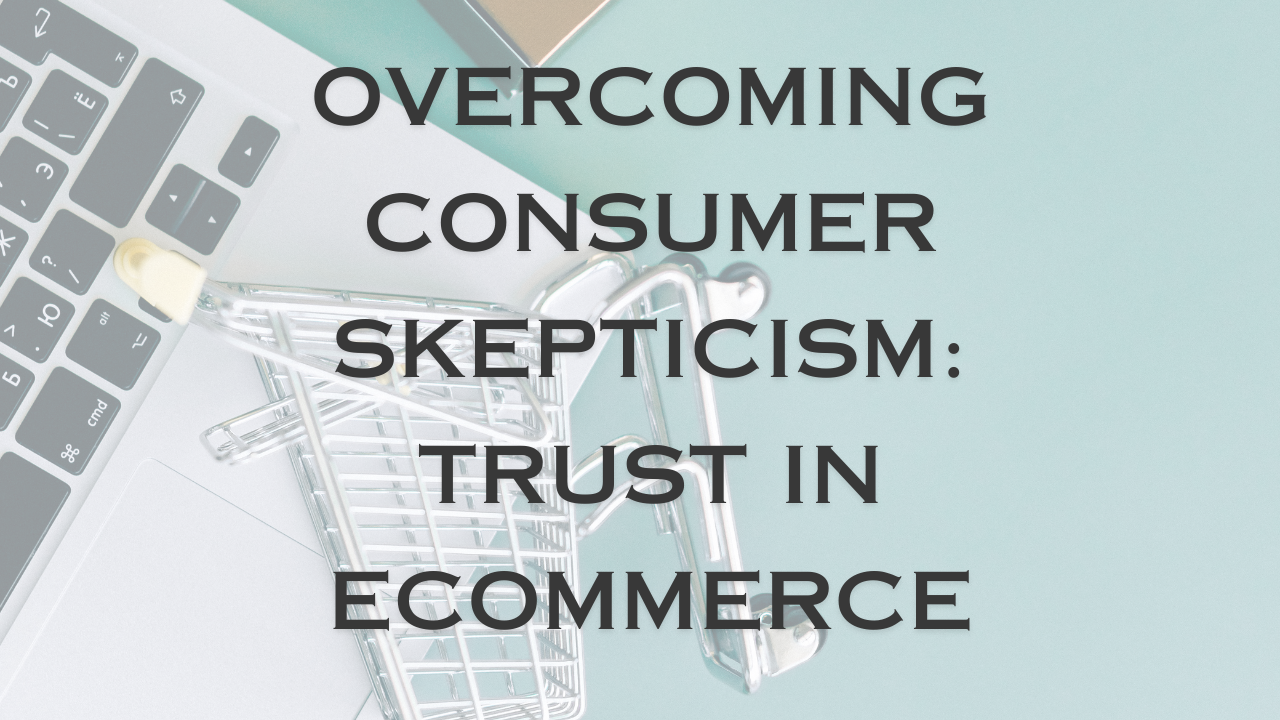In the fast-paced world of ecommerce, building trust with consumers is essential for sustainable growth and success. However, with the rise of online scams, data breaches, and counterfeit products, consumers have become increasingly skeptical about engaging in online transactions. This skepticism presents a significant challenge for ecommerce businesses, but by implementing effective strategies and fostering transparent relationships, they can overcome consumer skepticism and build trust. In this comprehensive guide, we will explore the various factors contributing to consumer skepticism in ecommerce and delve into actionable strategies to build trust and credibility with online shoppers.
Understanding Consumer Skepticism
Consumer skepticism in ecommerce stems from a variety of concerns, including worries about security, privacy, product quality, and the reliability of online businesses. High-profile incidents of data breaches and online fraud have undermined consumer confidence in the safety of online transactions, while the prevalence of counterfeit products and deceptive advertising has fueled skepticism about the authenticity and trustworthiness of ecommerce platforms. Additionally, the anonymity of online interactions can exacerbate consumer distrust, as there is often limited visibility into the people and processes behind online businesses. To address consumer skepticism, ecommerce businesses must confront these concerns directly and demonstrate their commitment to transparency, security, and customer satisfaction.
Building Trust Through Transparency

Source: LinkedIn
Transparency is a cornerstone of trust in ecommerce. Consumers are more likely to trust businesses that are open and honest about their practices, policies, and processes. Ecommerce businesses can enhance transparency by providing clear and comprehensive information about their products, pricing, shipping policies, and return processes. They should also be transparent about their data handling practices, assuring customers that their personal information will be protected and used responsibly. By being upfront and transparent in their communications, ecommerce businesses can instill confidence in consumers and alleviate concerns about hidden fees, deceptive practices, or undisclosed terms.
Securing Transactions and Protecting Data
Security is paramount in ecommerce, as consumers are understandably cautious about sharing their personal and financial information online. To build trust with consumers, ecommerce businesses must invest in robust security measures to safeguard transactions and protect customer data. This includes implementing SSL encryption to secure website connections, complying with industry standards for payment processing security (such as PCI DSS), and regularly updating security protocols to defend against emerging threats. Additionally, businesses should communicate their security measures to customers, reassuring them that their sensitive information is safe and secure when shopping online.
Ensuring Product Quality and Authenticity
Product quality and authenticity are crucial elements in earning consumer trust in ecommerce. Consumers are hesitant to purchase products online if they are uncertain about their quality, authenticity, or suitability. To overcome this skepticism, ecommerce businesses must prioritize product quality control and ensure that all products sold on their platforms meet high standards. This may involve working closely with trusted suppliers and manufacturers, conducting rigorous quality assurance checks, and providing detailed product descriptions, images, and reviews to help consumers make informed purchasing decisions. By consistently delivering high-quality, authentic products, ecommerce businesses can build credibility and trust with consumers.
Providing Exceptional Customer Service
Source: Flaticon
Exceptional customer service is a powerful tool for building trust and loyalty in ecommerce. When consumers encounter issues or concerns during the purchasing process, they expect prompt and effective resolution from the businesses they patronize. Ecommerce businesses should invest in responsive customer support channels, such as live chat, email, and phone support, to address customer inquiries and resolve issues in a timely manner. Additionally, proactive communication throughout the purchase journey, from order confirmation to delivery updates and post-purchase follow-ups, can reassure consumers and demonstrate a commitment to their satisfaction. By prioritizing customer service and responsiveness, ecommerce businesses can foster positive experiences and build trust with consumers.
Establishing Social Proof and Credibility
Social proof is a powerful psychological phenomenon that can influence consumer trust and purchasing decisions in ecommerce. Ecommerce businesses can leverage social proof by showcasing customer reviews, ratings, and testimonials prominently on their websites. Positive reviews and testimonials from satisfied customers can provide reassurance to potential buyers and help build credibility for the brand. Additionally, featuring user-generated content, such as photos and videos of real customers using products, can further validate the authenticity and desirability of products. By harnessing the power of social proof, ecommerce businesses can bolster consumer trust and confidence in their brand and offerings.
Conclusion
In the competitive world of ecommerce, trust is the foundation of successful customer relationships and business growth. By understanding the factors contributing to consumer skepticism and implementing proactive strategies to address them, ecommerce businesses can overcome barriers to trust and establish themselves as reputable and reliable brands. Through transparency, security, product quality, exceptional customer service, and social proof, ecommerce businesses can build lasting relationships with consumers and cultivate trust that drives long-term success in the digital marketplace.

No responses yet